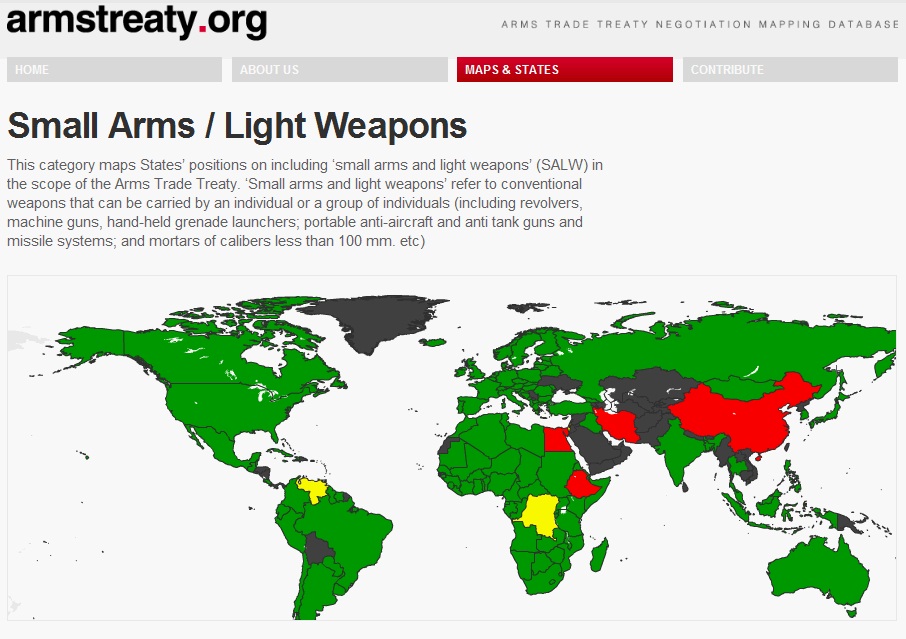
Private security companies (PMCs) employ twice as many people as police forces worldwide. Yet, PMCs only hold a fraction of the firearms possessed by law enforcement agencies.
This is one of the findings (pdf) presented in the Small Arms Survey 2011 published last week by the Graduate Institute of International and Development Studies in Geneva. This year’s theme is States of Security. In the introduction, Robert Muggah, research director at Small Arms Survey, writes: “scholars and policy-makers are revisiting certain fundamental questions about security provision in the 21st century: Who actually provides security, and under whose authority?”
Apart from this special focus, which resulted in one chapter on private security and small arms, and another on multinational corporations and private security, the volume features statistics on small arms and light weapons (SALW) transfers. There we learn that the US, Italy, Germany, Brazil and Switzerland are the top exporters of SALW. The biggest importers are the US, Canada, the UK, Germany and Australia.
The Small Arms Trade Transparency Barometer reveals that Switzerland, the UK, Germany, Serbia and Romania are the most transparent among the big small arms exporters. It does not come as a surprise that Switzerland, the UK and Germany are also among the biggest sponsors of the Small Arms Survey research project. Nor is it surprising that Iran and North Korea are the two least transparent exporters of SALW.
The publication of the Small Arms Survey is timely: this week in New York, UN member states are gathering for the 3rd PrepCom for the Arms Trade Treaty (ATT). The ATT, which is to be negotiated at a UN conference in 2012, aims to regulate international trade in conventional weapons. Roberto García Moritán, who heads the preparatory process, is gathering the states’ views on the scope, rules and norms of the treaty. During the third and last substantive preparatory meeting this week, UN members are talking about the implementation of the treaty.
SALW have featured prominently in the discussions about the ATT. Countries in Europe, Latin America and sub-Saharan Africa are the strongest advocates of their inclusion in the treaty. But China, Egypt and Iran have emerged as strong opponents.
The Small Arms Survey 2011 provides ammunition to those who want to better regulate trade in SALW. Some of its arguments may convince even the opponents: “The rapid growth of the private sector has outpaced regulation and oversight mechanisms. International initiatives to tackle regulatory gaps remain in their infancy.”
If China, Egypt & Co, which never miss an opportunity to defend their “national sovereignty,” start to worry about the influence of private security companies, they may agree to regulate arms transfers to those companies in defense of state monopolies on force.
Browse existing UN regulations on SALW on ResolutionFinder.org. Read further publications on Small Arms / Light Weapons by Small Arms Survey and other ISN partners. Finally, listen to an overview of the Small Arms Survey 2011 in the following audio slideshow courtesy of Small Arms Survey:

